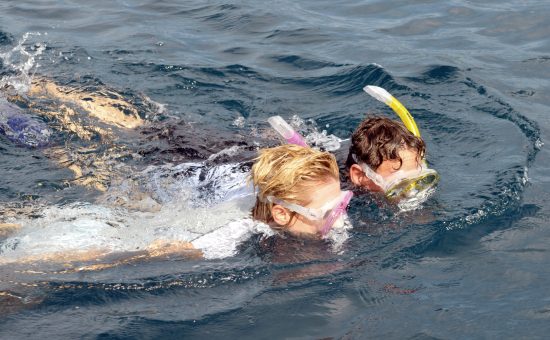





There is a
moment in time that nothing can compare to.
That moment when the noise of the world is silenced and
for that very moment it’s
just about that inner feeling of calm and peace. The
surrounding chitchat turns to a muffled hum in the background. The people and the commotion
around disappears into
the background and its just you that’s left and for that moment, its
all about you.
That’s the feeling that
I get when I am in the water. It could be swimming, snorkelling or scuba
diving, it does not matter. All I know is that from that
very point when the refreshing water hits my face and my body is surrounded by
water I have found my little bit of paradise in the
world and everything else takes second place. It is my calm, it is
my relaxation, it is my “yang” to balance
my busy work and life schedule
of “yin”. Throw off that balance and I
notice the effects in a short space of time.
The aquatic environment
has such a cathartic effect it is simply impossible to describe it somebody who
has never had the opportunity to experience it. I am a very active
person professionally and my body has become
dependant on these moments of peace that the water world
provides for me in order to function at my best. Take
that away and you literally take away a big part
of whom I
am.
Swimming and snorkeling as a form of therapy has a
huge benefit on our well being and helping us to deal with our emotions and
feelings. Swimming is the single most popular physical recreation after
walking. Recreational swimming
leaves you with a positive feeling afterwards.
Swimming elicits a natural, positive response to being in the water. Whether it
is swimming with others in a public pool which encourages
community spirit or swimming outdoors being at one with nature. The
end result is the same. Swimming
requires the alternating stretch and relaxation of skeletal muscles while
simultaneously deep-breathing in a rhythmic pattern. These movements are very
similar to that of yoga; progressive muscle relaxation, used to evoke the
relaxation response. Swimming, because of its repetitive nature, is incredibly
meditative.
Over the years many
studies have been undertaken to examine the benefits of swimming. A
large percentage of one such
study group agree that swimming releases stress and tension, and
added that being in the water helps them to feel good
about themselves and they come away feeling
mentally refreshed after swimming.
A different study reported that swimmers, no matter
what level, are less prone to tension, depression, anger and confusion when
they’ve been swimming. It means that novice and amateur swimmers can feel just
as good as the pros, thanks to the release of feel-good hormone serotonin.
Snorkelling, is a
similar activity to that of swimming but with the use of a mask, snorkel and
fins to enable underwater viewing for extended periods of time with little
effort. Snorkeling, just like swimming is a popular recreational activity. It
appeals to all ages and does not require the more in depth training like that
required for scuba diving.
Snorkeling is a
relaxing activity. The idea is to swim slowly, to breathe deeply and easy. Breathing
slowly encourages our blood vessels to dilate and our blood pressure to lower,
which is relaxing for both the mind and the body. Aerobic activites, like
snorkeling stimulates brain
chemicals that aid the growth of nerve cells; exercise also affects
neurotransmitters such as serotonin that influence mood and produces stress-reducing hormones, which helps control the brain’s response to stress and
anxiety.
People, like myself, who
exercise regularly like swimming or snorkeling tend to do so because it gives
us an enormous sense of well-being. We feel more energetic throughout the day,
sleep better at night, have sharper memories, and feel more relaxed and
positive about ourselves and our lives.
Physical activity helps to relax the muscles and
relieve tension in the body.
Since the body and mind are so closely linked, when
your body feels better so, too, will your mind.
 Cat
Cat 20th June 2016
20th June 2016